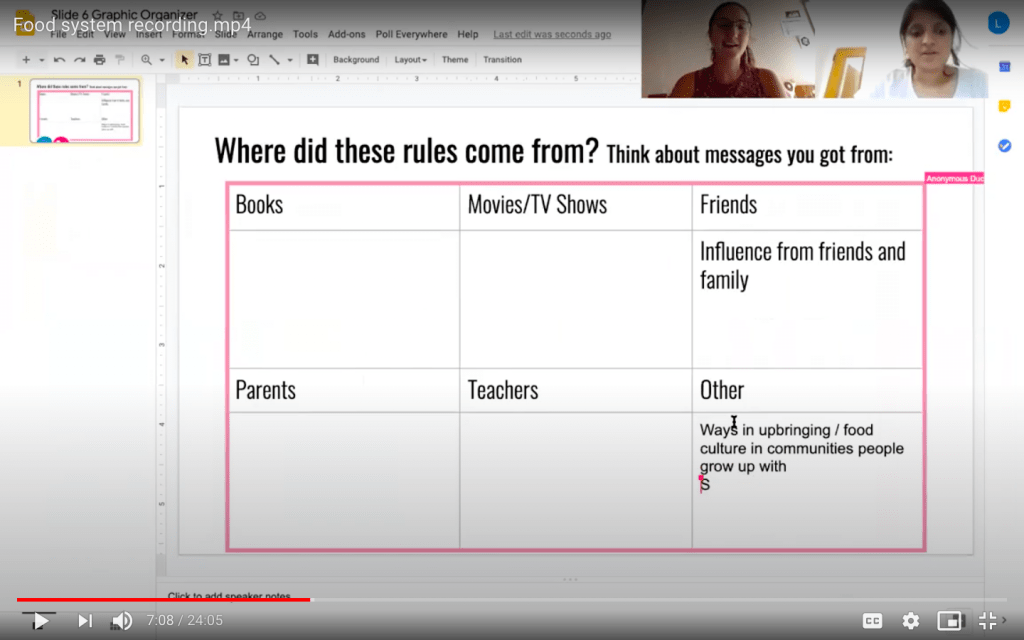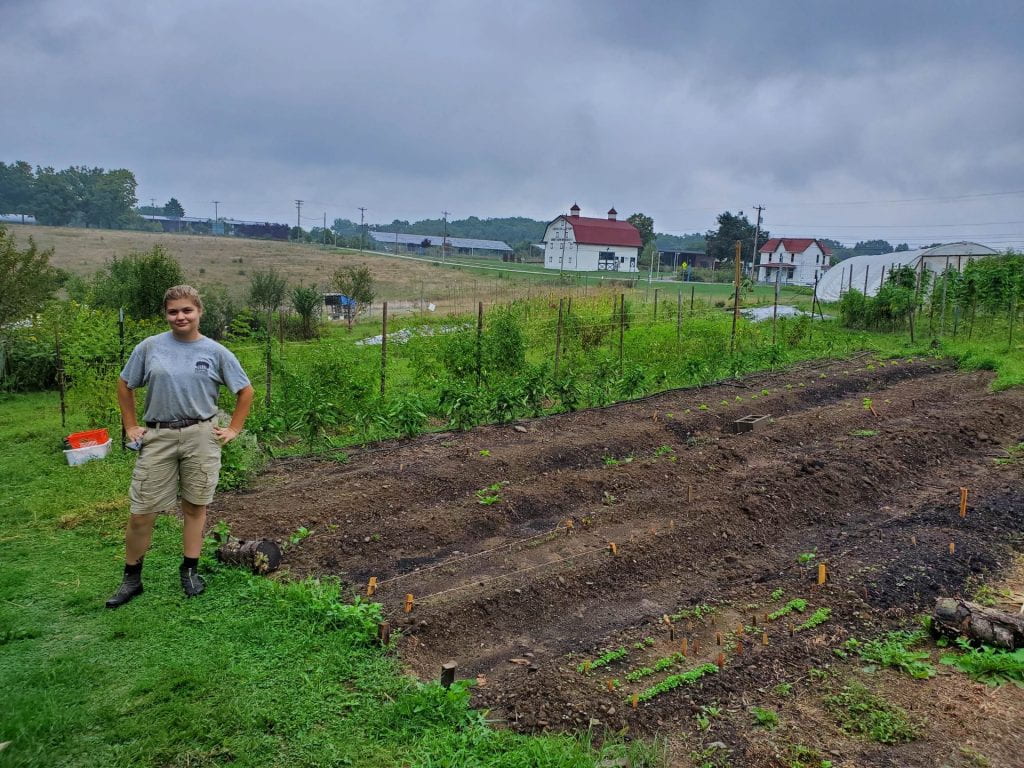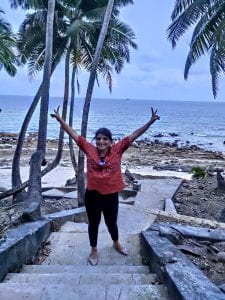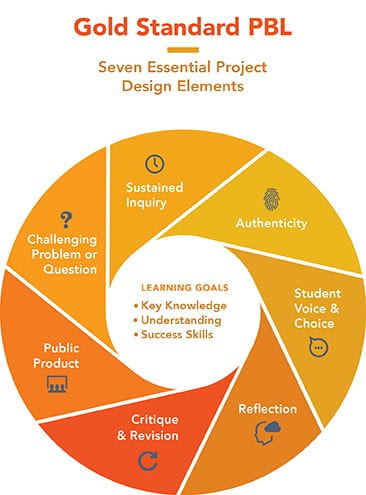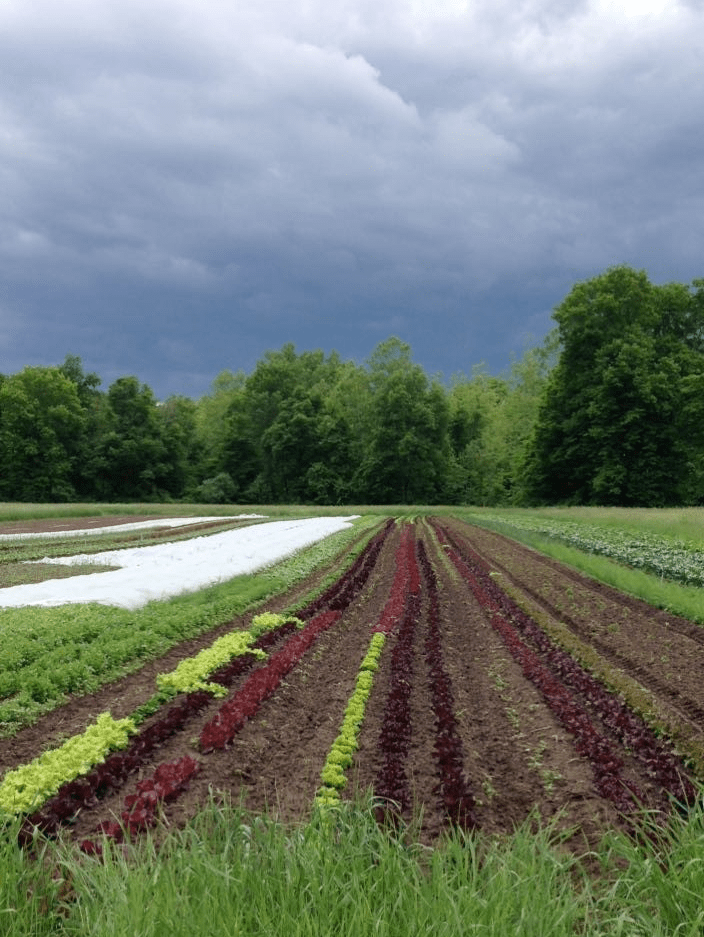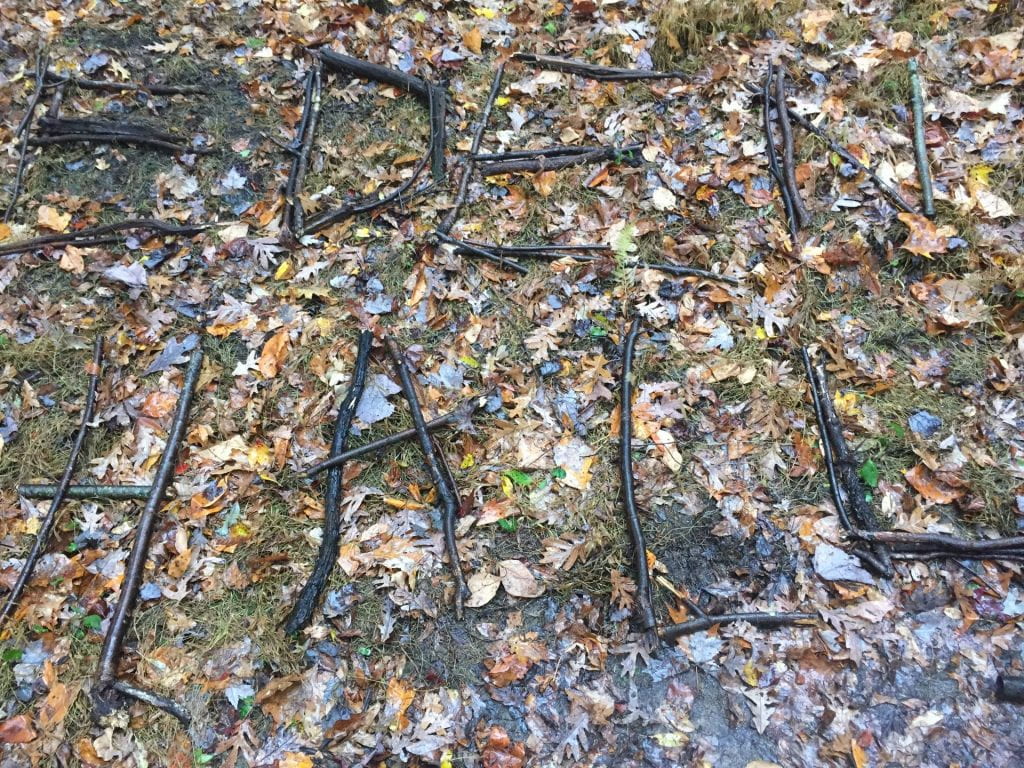
Nature Art from a student on a field trip
Chatham’s Eden Hall K-12 office has started holding in person field trips again, our team reflects on how they have started out this year.
This September, we held our first in-person field trip since March 2020! Five trips have been held so far this fall, with over 200 students touring the Eden Hall campus and participating in activities. We are so excited to be able to have in-person trips!
Multiple Chatham student staff members have joined the team this season to help lead and coordinate field trips. Go to the Eden Hall K-12 Program website to learn more about the new staff.
Our field trips currently include: opening or pre-visit activities related to the Sustainable Development Goals, hands-on activities in the Agroecology Demonstration Garden, lunches from the Eden Hall cafeteria, and tours of the Eden Hall campus to learn about the various aspects of sustainability featured on campus.
Students learn about the Sustainable Development Goals and how they are used on the Eden Hall campus. Our pre-visit activity connects the various goals to each other with a ball of yarn, showing how all of the goals are connected and work together.
Working in the Agroecology Demonstration Garden (ADG) has been described on post-surveys from K-12 students as their favorite portion of the trip. Students tour the gardens where they meet the goats and chickens, learn about sustainable agriculture practices, and do hands-on planting, harvesting or other garden maintenance activities. One group planted garlic and learned how to use tools to aerate the soil. Another group planted winter rye cover crops in open plots of the ADG and learned about the importance of cover crops. Other groups also helped in removing weeds from the beds. Students also are working together to define agroecology and connect how the practices of the garden promote sustainability. They are learning about the practice of composting and why this method is used to manage waste on campus.

Goats in the Agroecology Garden
On tours with Chatham students who have personal knowledge of the campus, K-12 visitors learn about the sustainable systems on campus, which include but are not limited to a wastewater management system, solar panels, an aquaculture lab, and nature incorporated into buildings (which is called “biophilia”).
After their trips, students provided us with lots of feedback. They loved the goats and hands-on activities and thought that the Chatham student facilitators were well informed, friendly, and good at answering questions. A few students even said that they plan to apply to Chatham after their trip. They described how their understanding of sustainability improved and some ways that they will include sustainable practices in their lives.
If you want to sign up for a trip in the spring or know someone who may be interested, share this information! To sign up, visit the Field Trips page of the Eden Hall K-12 Program website for information on how to apply, program options, and scholarships. In the spring, we have expanded the field trip activities being offered, to include the games and activities on the Challenge Course, and aquaponics chemistry and farming. Information on these activities can be found on the field trip page linked above.

Students on the Challenge Course





